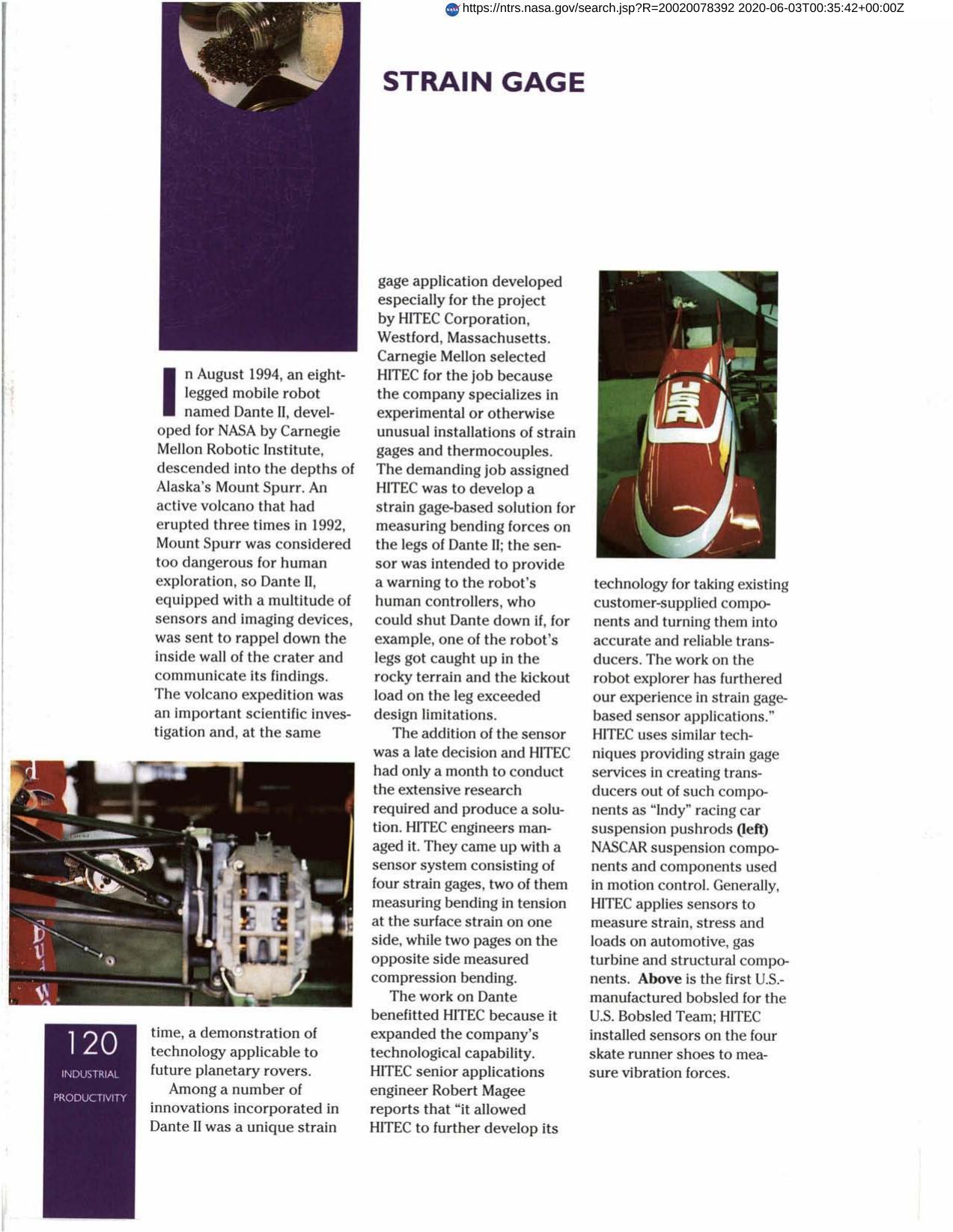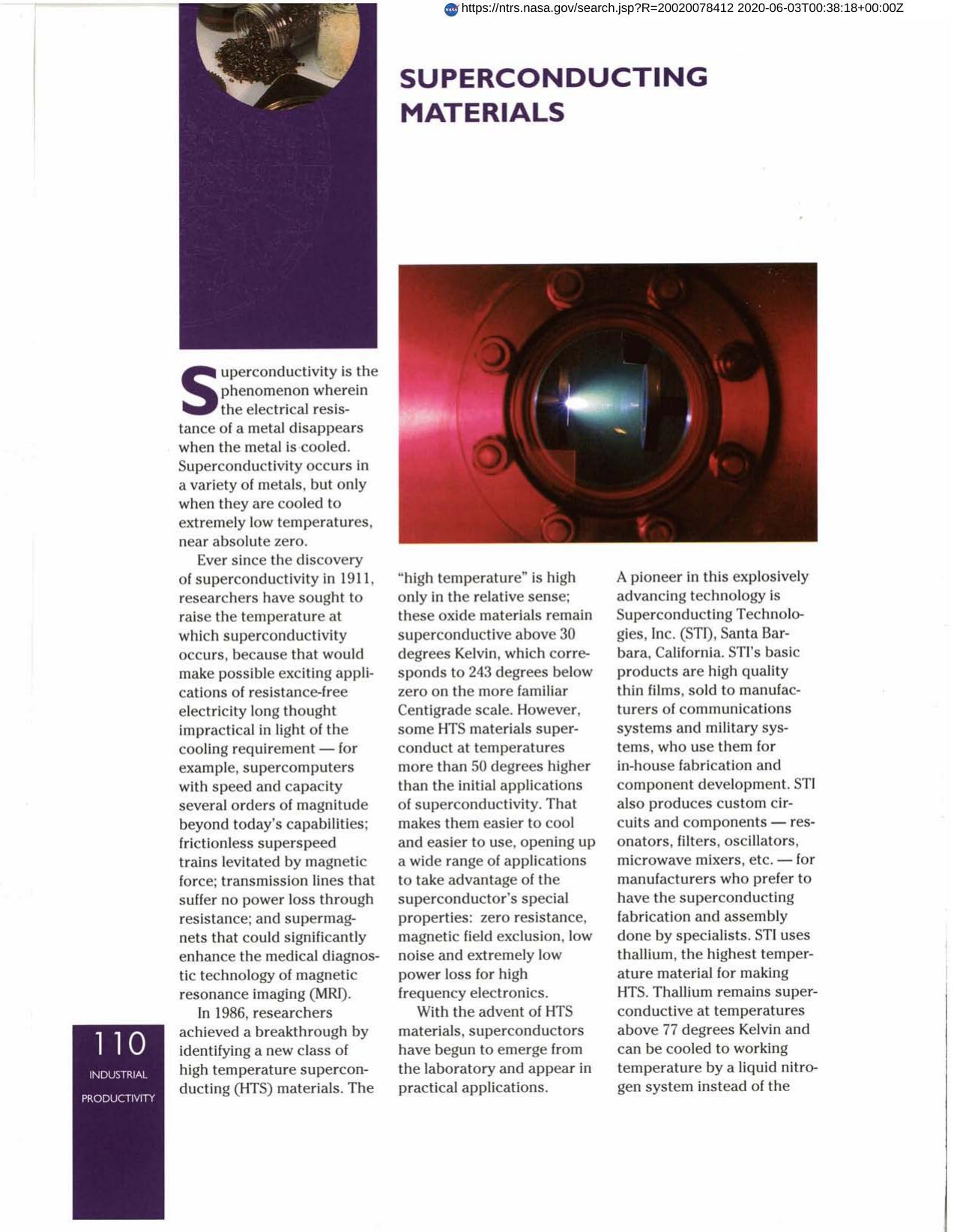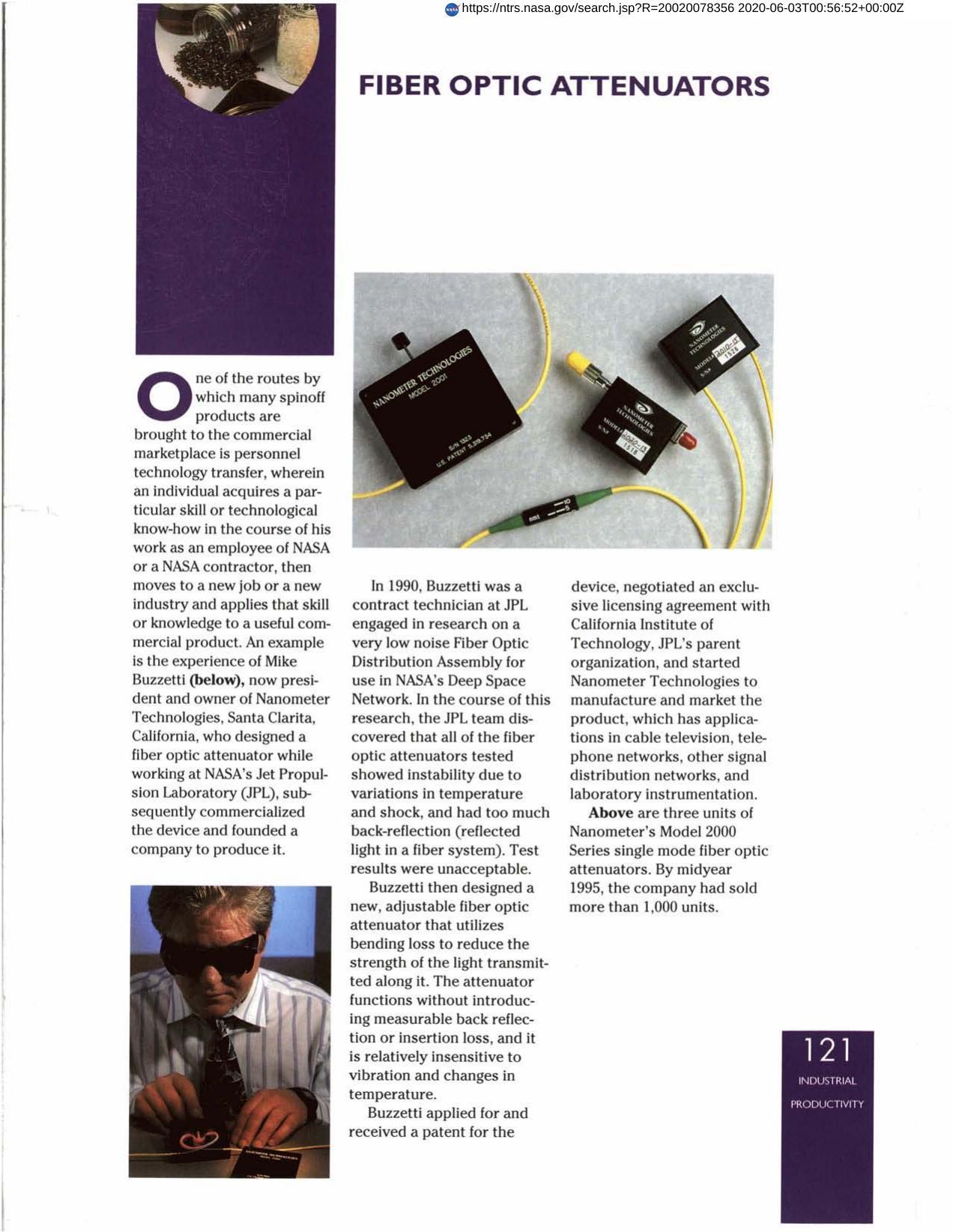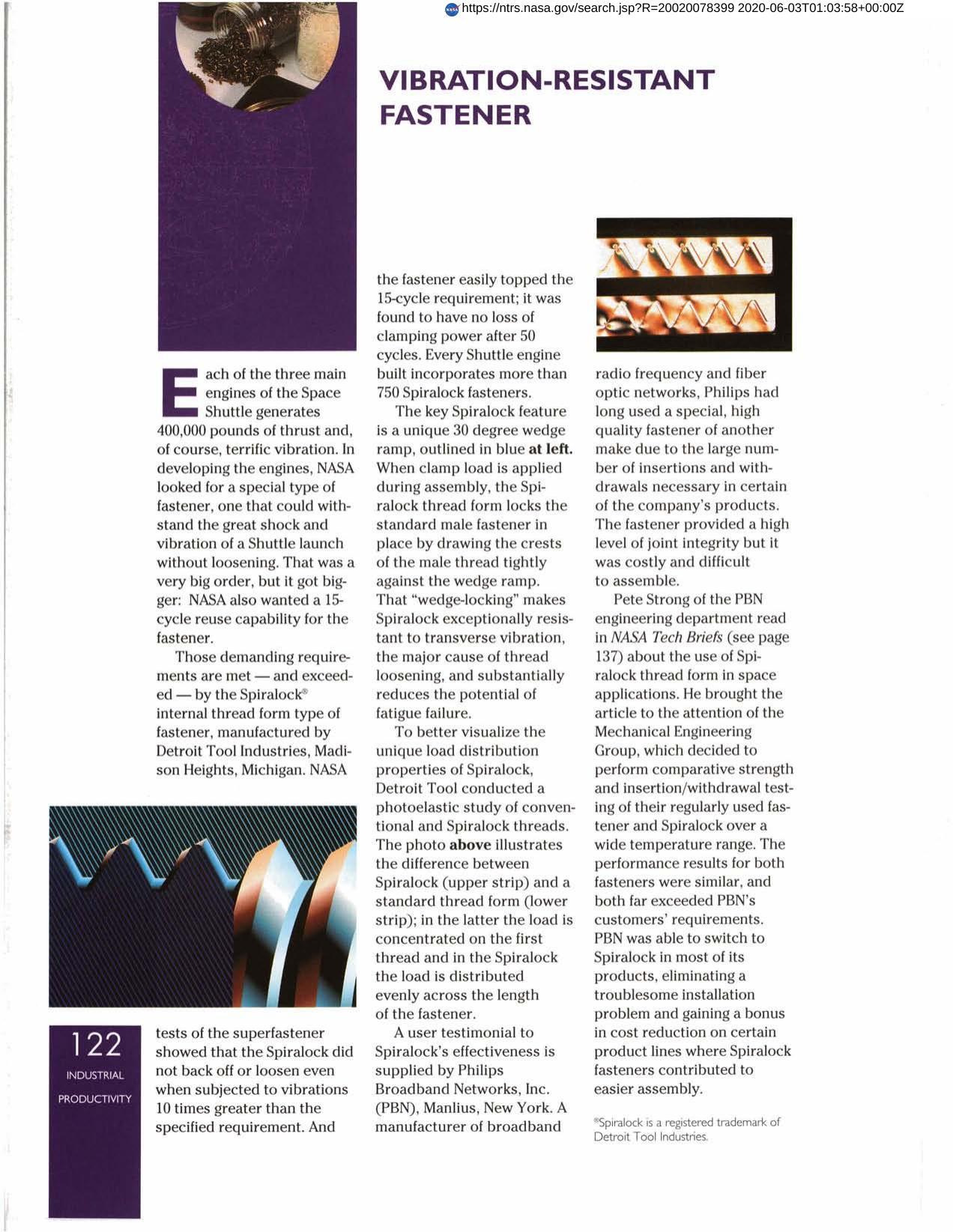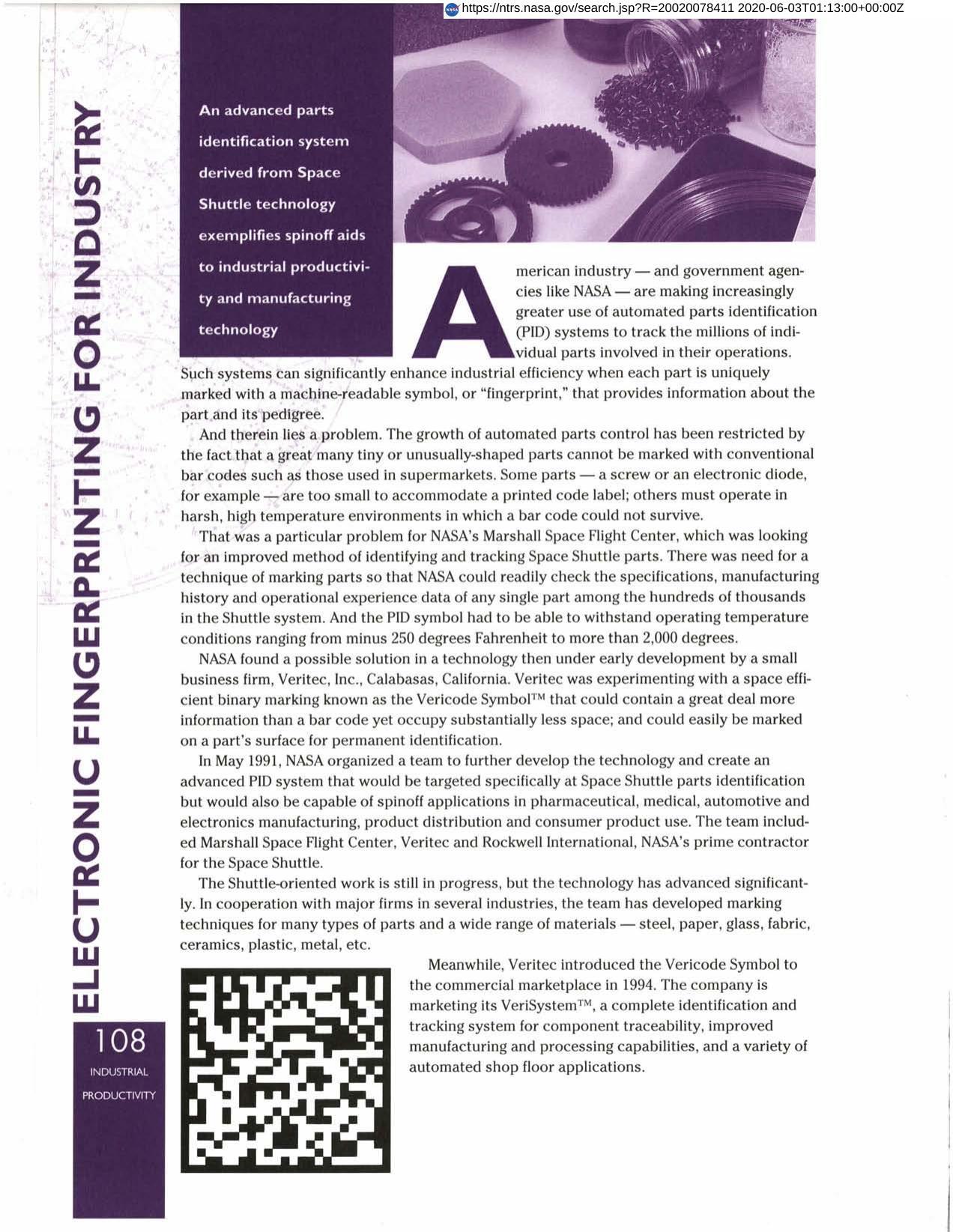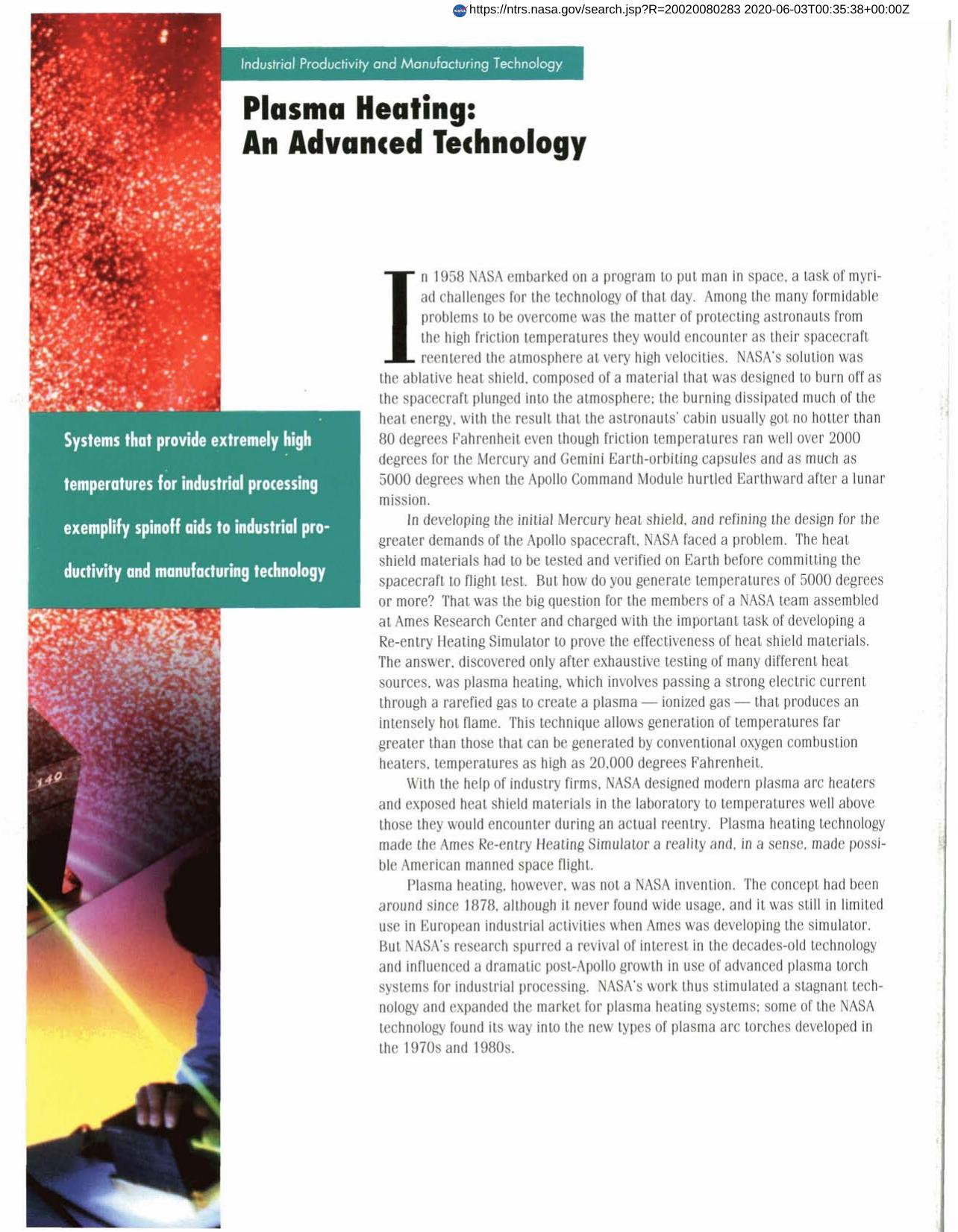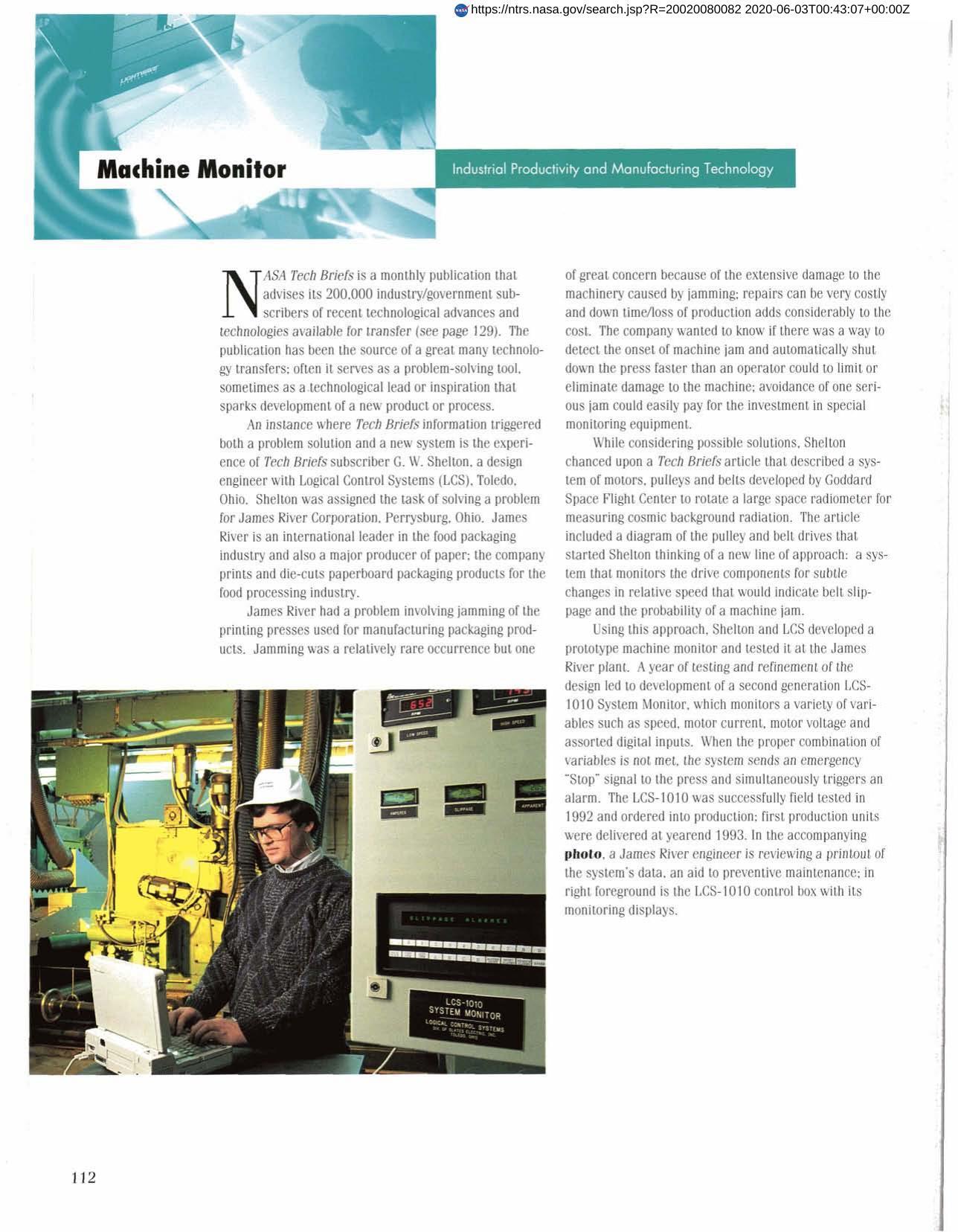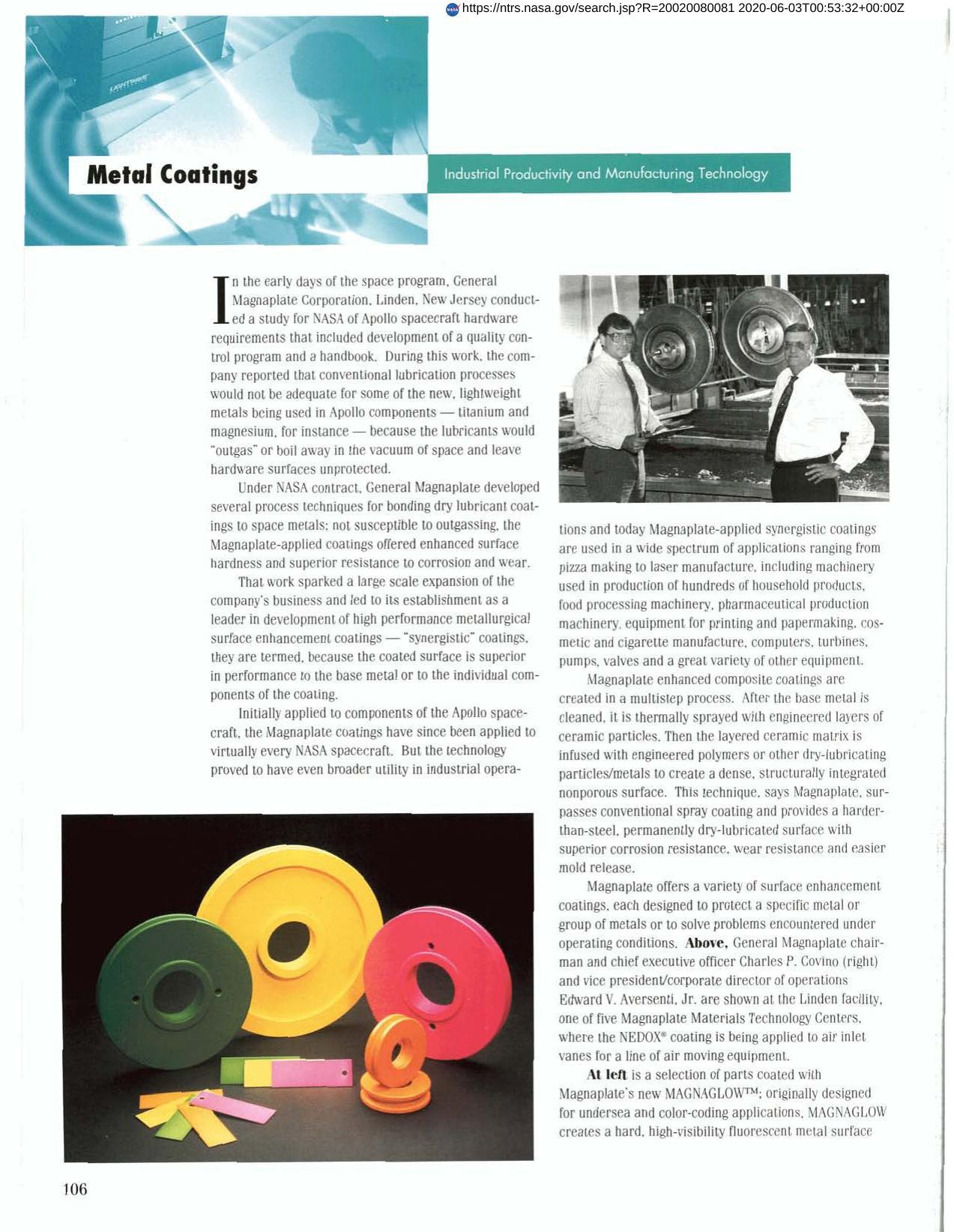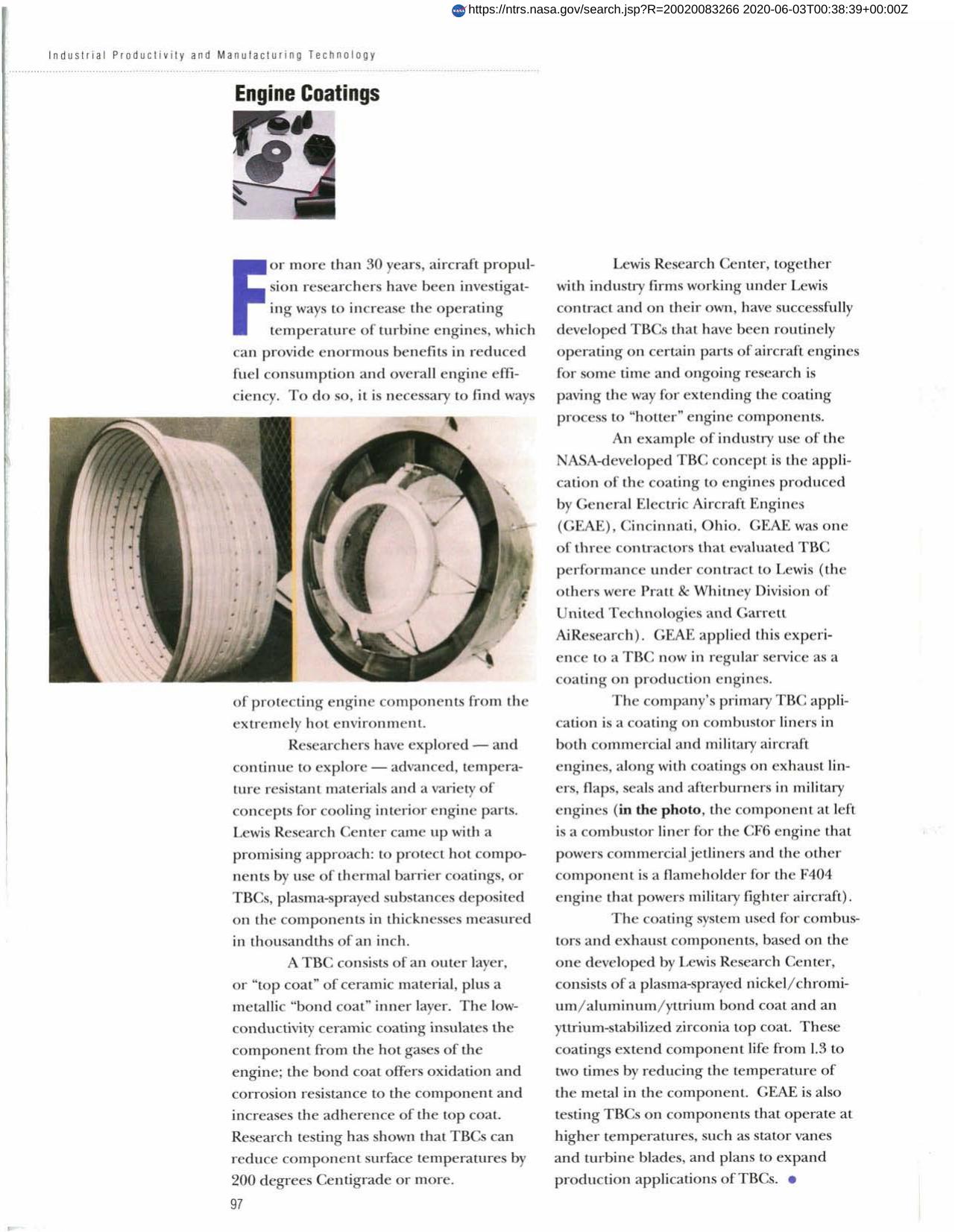
Engine Coatings
Increasing the operating temperature of turbine engines reduces fuel consumption and increases engine efficiency. However, engine components must be protected from excessive heat. Lewis Research Center has successfully developed thermal barrier coatings (TBCs), which are deposited on the components. They insulate, offer oxidation and corrosion resistance and increase adherence. Surface temperatures can be reduced by 200 degrees centigrade or more. G. E. Aircraft Engines, a Lewis contractor, now uses a TBC based on the one developed at Lewis, on production engines. The system, which consists of a bond and a top coat extends component life from 1.3 to 2 times. The company is also testing TBCs on components that operate at higher temperatures.
Full article: http://hdl.handle.net/hdl:2060/20020083266

Engine Coatings

Engine Coatings




